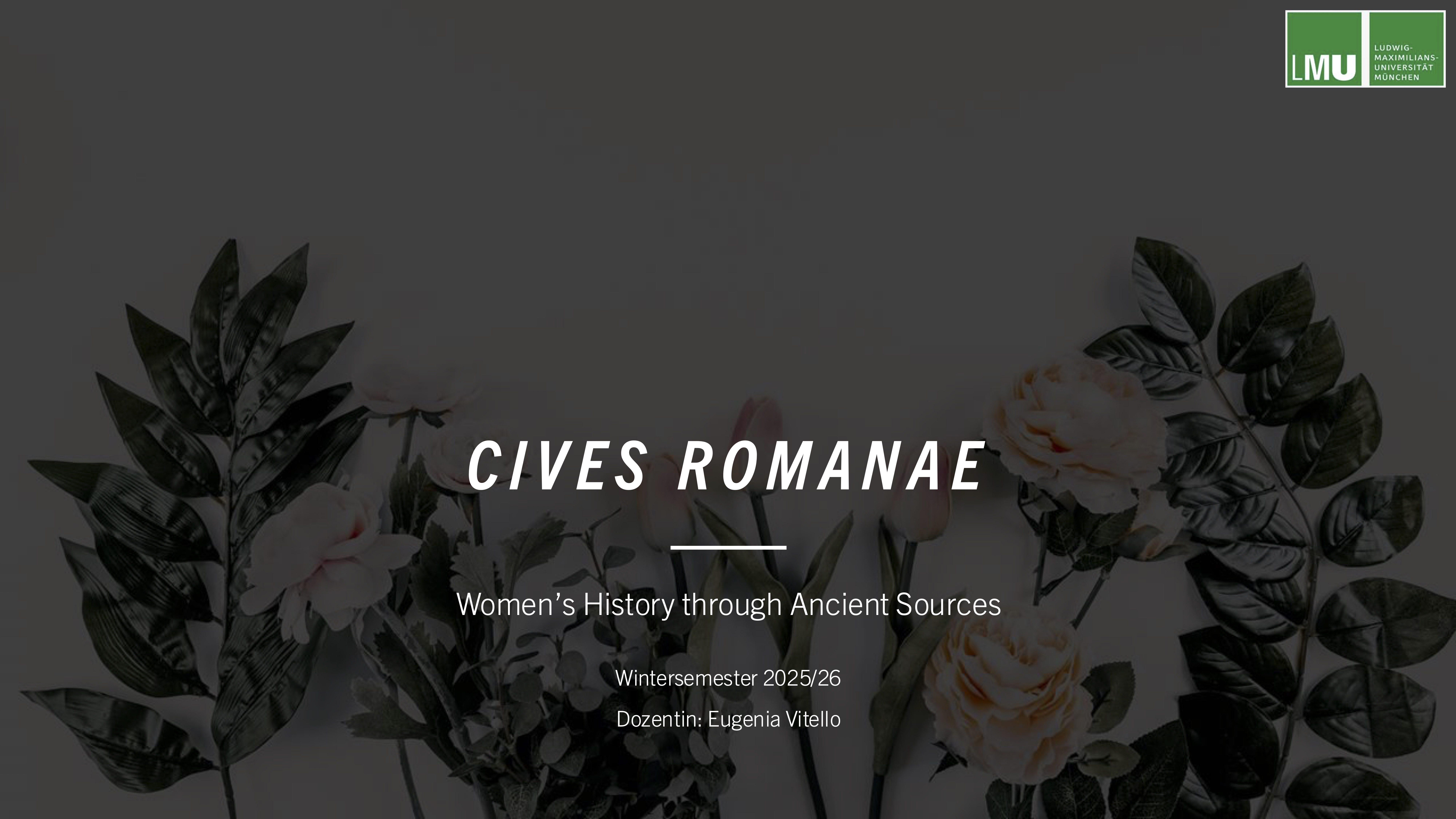Recent decades have witnessed an explosion of studies on the lived experiences and agency of women of the past. The debate that surrounds this flourishing of gender studies and women’s studies reminds us of the urgency and importance of reintegrating female histories in historical narratives in order to have a fuller, deeper, and more meaningful comprehension of past societies.
Ancient history has been a vital part of this momentous trend: accordingly, this course will provide the students with an introduction to the history of women in the Roman world, with a focus on female condition(s) in the Roman Mediterranean empire (1st-3rd centuries CE). We will explore a wide range of themes related to female presence, representation, and agency in the Imperial world. After an introduction on the prodromes of these phenomena in Republican Rome and Hellenistic Greece, the classes will extensively deal with the impact that the unifying yet flexible imperial framework had on the social, political, cultural, and economic lives of women both in the Eastern and Western parts of the Roman empire. This will be possible thanks to the examination of a wide-ranging selection of sources – from theatre to poetry, from medical texts to rhetoric and historiographical works, from inscriptions to papyri, all the while integrating insights from material culture, iconography, and numismatics.
With this course, students will learn how to approach diverse sources from a critical perspective and to engage with far-reaching international debates and the possibility to use theorical frameworks to investigate ancient women’s lives. By learning to see through Roman women’s eyes, I aim at bringing the students in contact with new exciting and innovative ways to tell the history of the past in all its complex, vibrant, and manifold expressions.
In addition to the suggested bibliography, Greek and Latin literary, visual, and documentary evidence inherent to the themes at hand will be provided in advance of each class and will be read and discussed collegially with the students. The class will be held in English, and knowledge of Greek and Latin may be helpful. All sources will be accompanied by a translation and will be commented together.
Additional tools – such as Companions, Handbooks, Sourcebooks, and Databases – will be discussed in the context of the classes, and further readings can be provided if needed, in response to specific interests and questions raised by the students.
Suggested Readings
Eastern Mediterranean
• Van Bremen, Riet (1996), The Limits of Participation: Women and Civic Life in the Greek East in the Hellenistic and Roman Periods, Amsterdam
Western Mediterranean
• Hemelrijk, Emily (2015), Hidden Lives, Public personae: Women and the Civic Life in the Roman West, Oxford
Groundbreaking Studies
• Richlin, Amy – Rabinowitz, Nancy (eds.) (1993), Feminist Theory and the Classics, New York (esp. Introduction)
• Pomeroy, Sarah (1995), Goddesses, Whores, Wives, and Slaves: Women in Classical Antiquity, New York

- Trainer/in: Eugenia Vitello